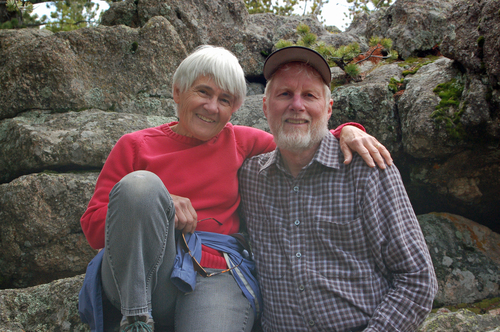Where Grace Abounds has been a part of the faith journey of our church for a long time. We have stood alongside Mary Heathman, the founder of WGA, from the beginning. For years, I served as the senior pastor of our church, and would like to share our congregation’s own pilgrimage as we have walked with WGA. As I reflect on those years, I believe I can identify three stages of development through which we have grown.
Conflict
The first stage was the most difficult. It was the stage of conflict. In the beginning the focus of ministry was reaching out to those in the gay community. That wasn’t a comfortable subject among us. It’s not that the issue of sexual brokenness didn’t touch our lives, but it wasn’t a subject that was openly acknowledged.
We weren’t doing the work of the ministry, Mary was. But she kept the issue before us by her very presence. She needed and asked for the support of her faith community despite our discomfort. Sometimes we refer to a real problem that everyone pretends isn’t there as, “the elephant in the living room.” Mary not only put a spotlight on an elephant in our living room, she led it in on a leash and plopped the pachyderm down in Dad’s favorite easy chair! We had our share of tension during those days.
Ministry
We likely would not have progressed beyond the conflict stage if two or three of the clients of WGA had not begun participating in our church. These people were easy to like. Hardly anyone knew they were struggling with sexual identity issues.
I remember one pivotal Sunday when we had a panel discussion with members of WGA. One of the men who had been attending our church shared his story, including the sad news that he was HIV positive. The listeners were stunned. Most had no idea he was even associated with WGA, and none knew of his illness. However, we already loved the man, and we were forced to deal with this news more as coming from a family member than debating a hypothetical scenario. At this point we entered the ministry stage.
The ministry stage involves people moving from being critics to being compassionate. It is one thing to cluck one’s tongue about a social difficulty, it is another to weep over those who are, “harassed and helpless, like sheep without a shepherd.” Now the issue was settled about whether ministry to those struggling with homosexuality was legitimate. We loved these people and wanted to help them.
The sensitive reader might consider the last sentence patronizing. It is. I think ministry often begins with somewhat of a patronizing attitude: the, “haves,” reaching down to help up the, “have‑nots.” Mostly though, I think that people who perceive themselves as different are simply afraid of each other. Yes, straight church people have homophobia, and yes, those in the gay community have “ecclephobia” (the fear of churches)! Some courageous souls must reach through that wall of fear and clasp each other’s hands in Jesus’ name. That will probably be done with our insecurities hanging out all over the place, but it is an awful lot better than doing nothing.
Acceptance
After years in the acceptance stage I see us moving into the community stage. Categorization is now beside the point. We need each other. We are a better community of faith together than separate. We serve each other with glad hearts. We are closer to being one.
This is a happy story that I am glad to tell. We have woven together a few threads of grace. However, our mutual brokenness strains those strands. We pray we will remain faithful, and live to see God complete His tapestry of trust and love among us. A friend of mine in WGA once said, “The answers in Christianity are relational.” Yes, they are. The Apostle John wrote that we really only needed to do two things, believe in Jesus, and love each other the way He does (1John 3:23).
Yes, that would be enough, wouldn’t it?

Chuck Orwiler
Chuck Orwiler and his wife, Vicky, are members of Denver Friends Church, where he served as Senior Pastor for a number of years. Chuck is involved in developing soul care and spiritual formation for ministry leaders in Denver.

